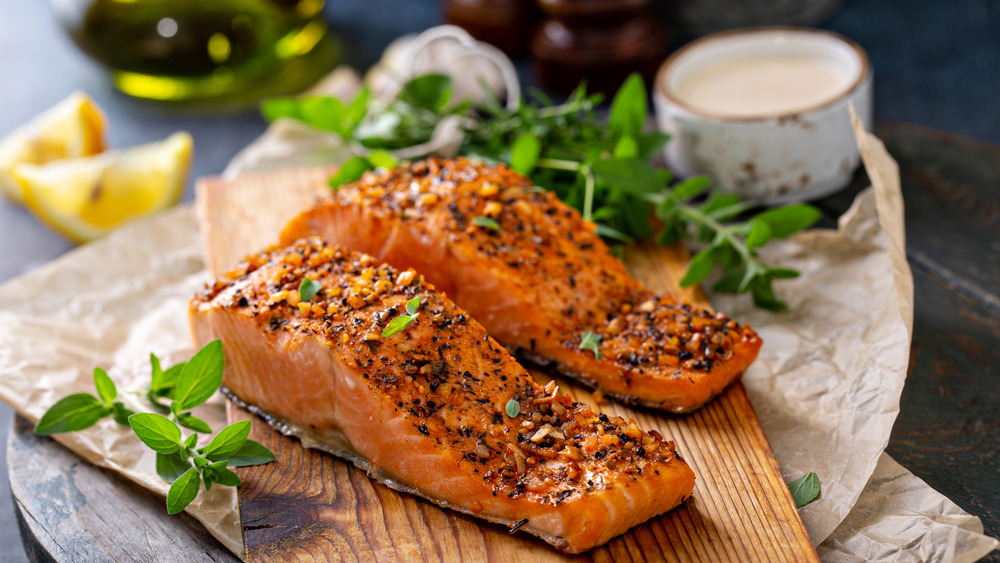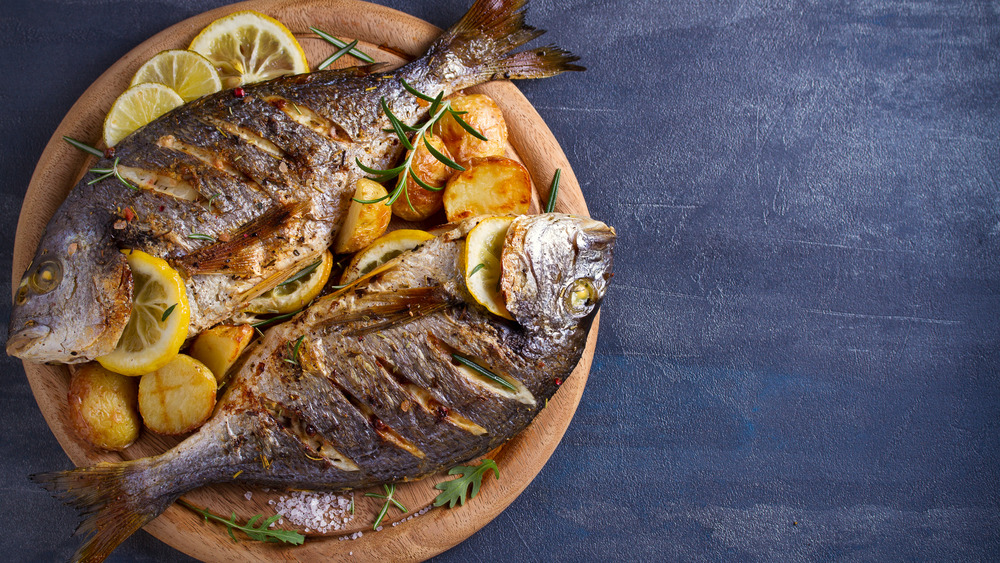Here's How Much Fish You Should Be Actually Eating
Fish is a notoriously tricky food, both to cook and to get people to eat. According to Prevention.com, there are any number of things that can go wrong when cooking fish, with some of the most common mistakes being things like not checking for bones before cooking, overcooking, over-salting, not drying, and even something as specific as cooking the wrong side down first. These can all mess with the way a person tastes and enjoys their fish and can really contribute to turning them off of it. Would you want to constantly risk little bones in your forkful when you can avoid it?
City Fish Market has an article on how to cook fish for non-fish lovers, indicating that there are enough of them to warrant a whole article on how to try to fix that dilemma so they get the nutrients they need from it. And for those who do like it enough to eat it multiple times a week, is there a limit?
So what is the sweet spot?
Food Network actually mapped out the way to a healthy diet, including the amount of fish you should be aiming for. According to them, the "sweet spot," so to speak, is twice a week. They further suggest that how you get those fishy nutrients is all up to you. The writer, a mother, uses tricks like tuna and crackers and fish tacos, but you can also try fish sticks for pickier eaters.
The FDA actually suggests a different form of measurement. Instead of days per week, they recommend a specific amount — eight ounces per week, to be exact. They note that the eight ounces will provide needed "protein, healthy omega-3 fats (called DHA and EPA), more vitamin B12 and vitamin D than any other type of food, iron ... [and] other minerals like selenium, zinc, and iodine." They also warn against varieties with too much mercury, which can have less-than-healthy effects on your system.
Are there other options?
As mentioned before, not every person is a fish-eater. Many, in fact — especially children — may be fish averse. So what is the recommendation when you truly can't get someone to go fish?
Berkeley Wellness suggests you do what vegetarians do: Get your nutrition values from other omega-3 rich foods. For example, "flaxseeds, walnuts, and soybean and canola oil," or fish oil supplements like vitamins. And for those who like fish, but have decided to take on a vegetarian diet, Animal Aid has a list of 10 vegetarian alternatives to fish so you can savor the flavor without wallowing in guilt.
Ultimately, the choice is up to you. You can choose to heed their advice or do what you feel is best for your body (and taste buds). Eat fish, eat meat, eat veggies, but do what makes you look and feel your best!


